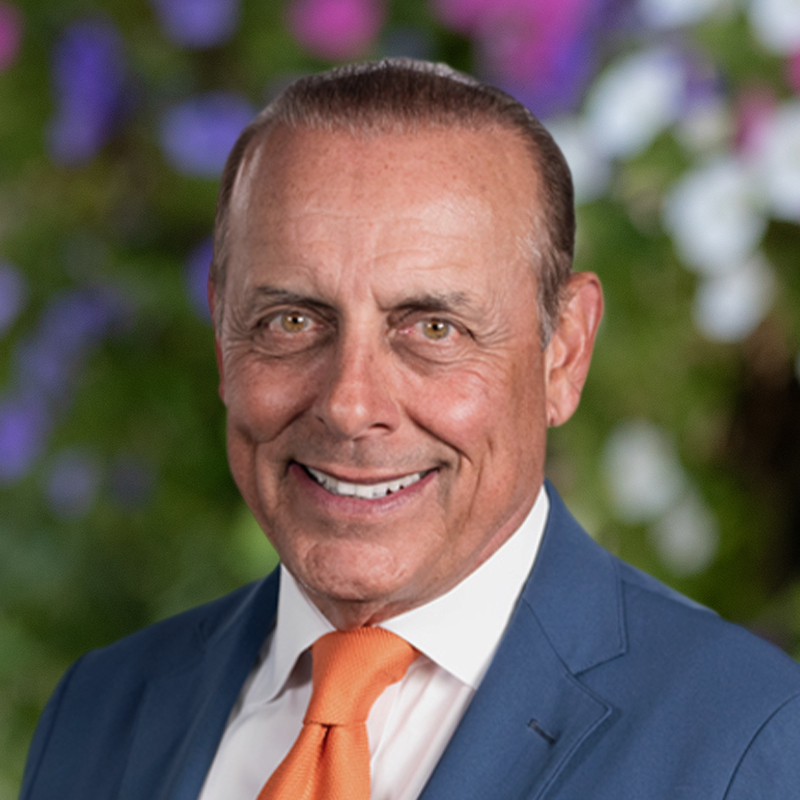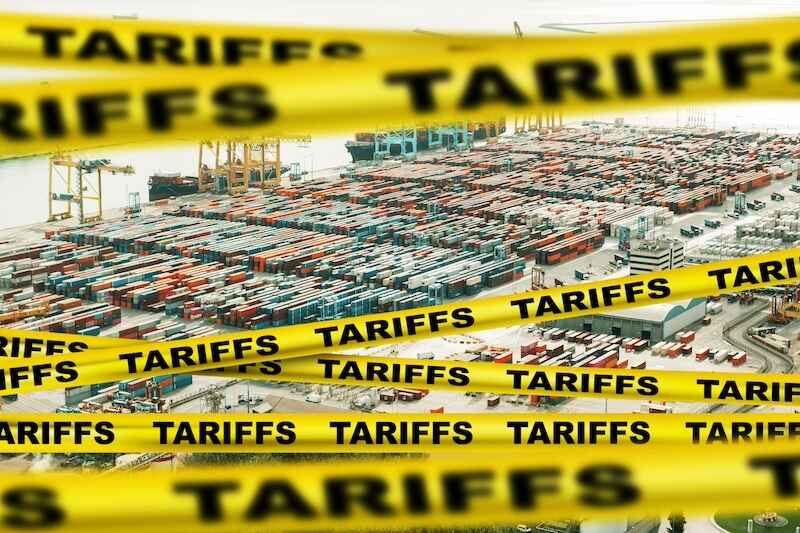SoftBank Is Launching a SPAC: Should You Buy It?
Shah Gilani|December 23, 2020
Since it’s the holiday season and gift-giving is the order of the day, SoftBank Group Corp. (OTC:SFTBY) is smiling on itself. It’s gifting itself with a SPAC, which, as sure as the earth’s still turning, won’t be its last.
Should you buy into this SoftBank SPAC when it IPOs? Should you buy into any SoftBank SPAC, ever?
Here’s what you don’t know about SoftBank and just a little about what you don’t know about SPACS…
A Fairytale On the Outside
On Monday, a newly formed affiliate of giant SoftBank, the brainchild of Japanese billionaire, technology entrepreneur, investor, and philanthropist, Masayoshi Son (Masa Son, as he’s known) and SoftBank’s $100 billion Vision Fund, registered to float a SPAC IPO.
A SPAC is a special purpose acquisition company, which are formed by entrepreneurs, investors, private equity executives, name-brand celebrities, and just about anybody, but usually a “team” of individuals, known in the business as “sponsors,” to hold themselves out as moneymaking gurus.
The reason SPAC sponsors are almost always proven moneymakers, in whatever field they may have had success, is because the SPAC they are raising money for through an IPO, isn’t an operating company.
It’s a bet that the sponsors are so good at making money they’ll use the proceeds from the IPO to find a company to buy and turn that into a mega-success.
SPACs are also known as blank check companies.
The game is about sponsors, with their expertise, attracting investors to buy IPO shares, who expect sponsors to duplicate their success by turning what’s essentially a shell company into a bona-fide operating company that will eventually make money, or maybe already makes money, see its revenues and earnings rise towards the sun, and its stock price climb to the stars, enriching all investors lucky enough to own it.
Sounds like a fairytale, right?
The first problem, after sponsors raise money selling shares in their blank check company, which isn’t a problem this year as SPACs are raising record amounts of money and coming out almost two at a time, is the SPAC has to find an operating company to buy.
The simple way to look at a SPAC, so you don’t get caught up in all the hype, is to look at it as a way for a company to go public. Some companies might have a hard time going public the traditional way, by IPOing themselves.
There are lots of reasons they may not want to or be able to take themselves public, one of which is that many of them don’t make money; in fact, they lose money. Though that hasn’t stopped hundreds of companies from going public in the past. And that won’t stop them in the future.
Private operating companies can “reverse merge” into an existing company as a way to become a publicly traded company; that’s what SPACs do. They offer private companies a way to become publicly traded companies.
That’s all a SPAC is on the outside. Sponsors raise money, in other words, they get a blank check, by selling shares in an IPO, and go looking for a company to buy and reverse merge it into.
Red Flags
One strange thing about a SPAC IPO, and there are many strange things about SPACs (more on that on Sunday) is the sponsors aren’t supposed to have any idea of what company they might buy.
The simple reason for that is, if they knew which company they were going to buy, they’d have to disclose that company’s financial information in their Registration Statement when they file for an IPO.
Along comes Masa Son.
SoftBank is a giant publicly traded company. Masa Son is its founder, CEO, and 22% owner. SoftBank raised $100 billion in its Vision Fund, to invest in startups and other promising companies, including companies like Uber, DoorDash, and WeWork. And now Vision Fund’s Chairman and CEO, Rajeev Misra, and SoftBank’s CFO, Navneet Govil, are the two-person sponsor team behind SVF Investment Corporation, the SPAC that’s about to raise $525 million from investors when it IPOs.
As soon as SVF Investment Corp. raises its $525 million from IPO investors, it will go looking for an operating company to buy.
And that’s where any SoftBank or Vision Fund related SPAC becomes questionable.
The question is, will the SPAC look to buy one of the 88 portfolio companies Softbank or Vision Fund has invested in? Is any SoftBank, Vision Fund-affiliated SPAC going to be an exit vehicle through which Softbank or Vision Fund monetizes the investments they’ve made but haven’t been able to cash out of?
While SPACs aren’t supposed to know what company they might target before they IPO, some recent deals led by private equity sponsor teams look like they’re already blurring some of those lines. SoftBank for its part hasn’t ruled out its SPAC buying a portfolio company.
Already, there’s talk the SPAC might buy WeWork, a failure Softbank hoped to IPO last year, but it imploded spectacularly.
Is the SVF SPAC going to salvage Softbank’s $18.5 billion loss in WeWork?
The problem I have with any SoftBank or Vision Fund affiliate SPAC buying any portfolio company of either parent company is that the amount of self-dealing would likely lead to highly inflated company values and ultimately suspect outcomes for SPAC investors buying into newly merged public companies.
WeWork would be a perfect example.
SoftBank was WeWork’s biggest fan and biggest investor. All in, SoftBank invested $18.5 billion in WeWork. The last round of capital SoftBank put into WeWork, some $2 billion in January 2019, resulted in WeWork being valued at $47 billion.
Here’s the thing you may not know: Different rounds of investment in private companies sometimes create different values. Without going into complicated particulars, for example, SoftBank might invest $2 billion in WeWork such that the amount of shares it gets, at the price it pays for them, ends up valuing all other shares at a much higher price, making the valuation of the whole company much higher, as in $47 billion.
The reason Masa Son was willing to pour more money in for fewer shares is because his investment round elevated the value of everyone’s shares, including the previous $16.2 billion worth of investment capital SoftBank had already put in.
All that was supposed to work out when WeWork IPO’d at a hoped-for valuation of $100 billion. That would have been some payday for inside investors.
But that didn’t happen. Long story short, as the WeWork road show went forward, investors questioned what the company was doing, why the founder was able to engage in so much self-dealing, and how legitimate the company’s financials were. So few investors showed interest that the IPO was canceled.
And just like that, WeWork, which was supposed to IPO with a $100 billion valuation, wasn’t worth the $47 billion Masa valued it at in January 2019, or even the $7.3 billion it was valued at in December 2020. WeWork’s valuation collapsed to $2.9 billion, according to how Softbank valued it on its own books.
Now the SVF SPAC might be looking at WeWork.
I’m not saying it is. What I am saying is it could. And that’s a monumental problem.
But it wouldn’t just be buying WeWork that would be a problem, SoftBank’s first or any subsequent SPACs buying any portfolio company would be a nightmare.
I wouldn’t touch this SoftBank-backed SPAC with a ten-foot pole.
On Sunday, I’ll tell you the real reason why I wouldn’t buy any Softbank-affiliated SPAC, and you won’t believe it.
Until then, Happy Holidays!
Sincerely,
Shah
P.S. – When you’ve been in the business as long as I have, you get to know a lot of incredible people. And in the spirit of the holidays, I want to highlight a friend who’s given his readers tons of mind-blowing opportunities. Tom Gentile, you might know him as America’s #1 Pattern Trading Expert, has created the gold standard of low-cost, high-potential opportunities. And for the first time, you don’t need more than $1 to boost your profit potential exponentially. In fact, his readers have been able to see the proof in their accounts… week after week, like clockwork. Details here…

Shah Gilani
Shah Gilani is the Chief Investment Strategist of Manward Press. Shah is a sought-after market commentator… a former hedge fund manager… and a veteran of the Chicago Board of Options Exchange. He ran the futures and options division at the largest retail bank in Britain… and called the implosion of U.S. financial markets (AND the mega bull run that followed). Now at the helm of Manward, Shah is focused tightly on one goal: To do his part to make subscribers wealthier, happier and more free.

